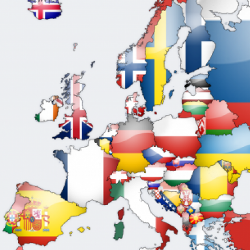Latest iGambling Legislation from Around Europe

The landscape of online gaming is constantly changing as countries around the world introduce new legislation to regulate online gaming, or to modify their current iGaming laws. Nowhere is this more true than across Europe, where changing cultural values have led to a more liberal view of online gambling in recent years. Here is a look at the current status of iGaming in a number of European countries:
Czech Republic
The Czech Republic only allows operators located within its borders to run iGaming websites, which has greatly limited its development with only five operators currently licensed to provide service inside the country. Industry experts believe that this is about to change, though, as the Czech Republic’s Senate has approved a bill that would open up the the country’s iGaming industry to operators located anywhere in the European Union, or European Economic Area.
Newly licensed operators would be subject to a 35 percent tax on gross gaming revenue generated by online casino games and a 23 percent tax on gross gaming revenue from sports betting. The tax rates are meant to help protect local operators and ensure that they still have an advantage. If Czech President President Miloš Zeman signs the law, it will fall on the country’s Ministry of Finance to prevent unlicensed European operators from receiving payments from people in the Czech Republic. The bill wouldn’t be slated to go into effect until at least January 1, 2017.
France
The French Senate has already approved changes to France’s Digital Bill, the law that allows French operators to run iGaming sites. If the law is ultimately approved, the French gaming authority would begin to issue licenses that would allow poker players on local French networks to be pooled with players from partnering countries, likely Spain and Portugal; however, only Texas Hold’em and Omaha online poker games would be eligible for pooling. Should the legislation prove successful, it would likely go into effect sometime during the first quarter of 2017.
France’s online poker market has steadily declined since iPoker regulation was introduced, and despite the country’s resistance to sharing liquidity, it seems that it can no longer ignore the fact a radical overhaul of the industry is needed to prevent it slumping further into the mire. As the amendment subsequently acknowledged:
“The steady decline of revenue from online poker games can be explained by the fact that the partitioned French regulated market is abandoned by players, who turn to illegal operators that offer poker tables with global action that are more attractive. The fact is, the more players a poker table or tournament has, the greater the reward, and the more attractive the site is.”
Greece
Cash-strapped Greece has made headway in changing its online gambling laws in the hope of generating more tax revenues to fill the country’s empty coffers. Changes to the existing legislation would set a flat tax of 35 percent on revenues from all types of gaming, regardless of the traffic volume and overall usage levels of the site. While the move is believed to result in tax revenues of €54 million per year, the amendments are being widely criticized as many believe that it would make Greece an unappealing place for foreign operators to do business in.
Poland
Currently, online poker is not formally legalized in Poland, but many Polish people use unregulated Internet sites in order to play. Now, the country is considering whether or not to approve a Bill that would legalize online poker and place it under regulation. The proposed legislation also increases the tax on sports betting from 12 percent to 20 percent, which Jaroslaw Gowin, the Polish Deputy Prime Minister and Minister of Science and Higher Education, believes would boost tax revenues by €50 million annually. In addition, proposals have been suggested that would levy more severe penalties on those unlicensed operators which continue to offer their services in Poland, with a statement from the country’s Ministry of Finance saying:
“In the opinion of the Ministry of Finance the above proposals represent a compromise between ensuring the highest possible level of protection for players from the negative effects of gambling and the guarantee of the existence of a transparent and well functioning market for legal gambling.”









